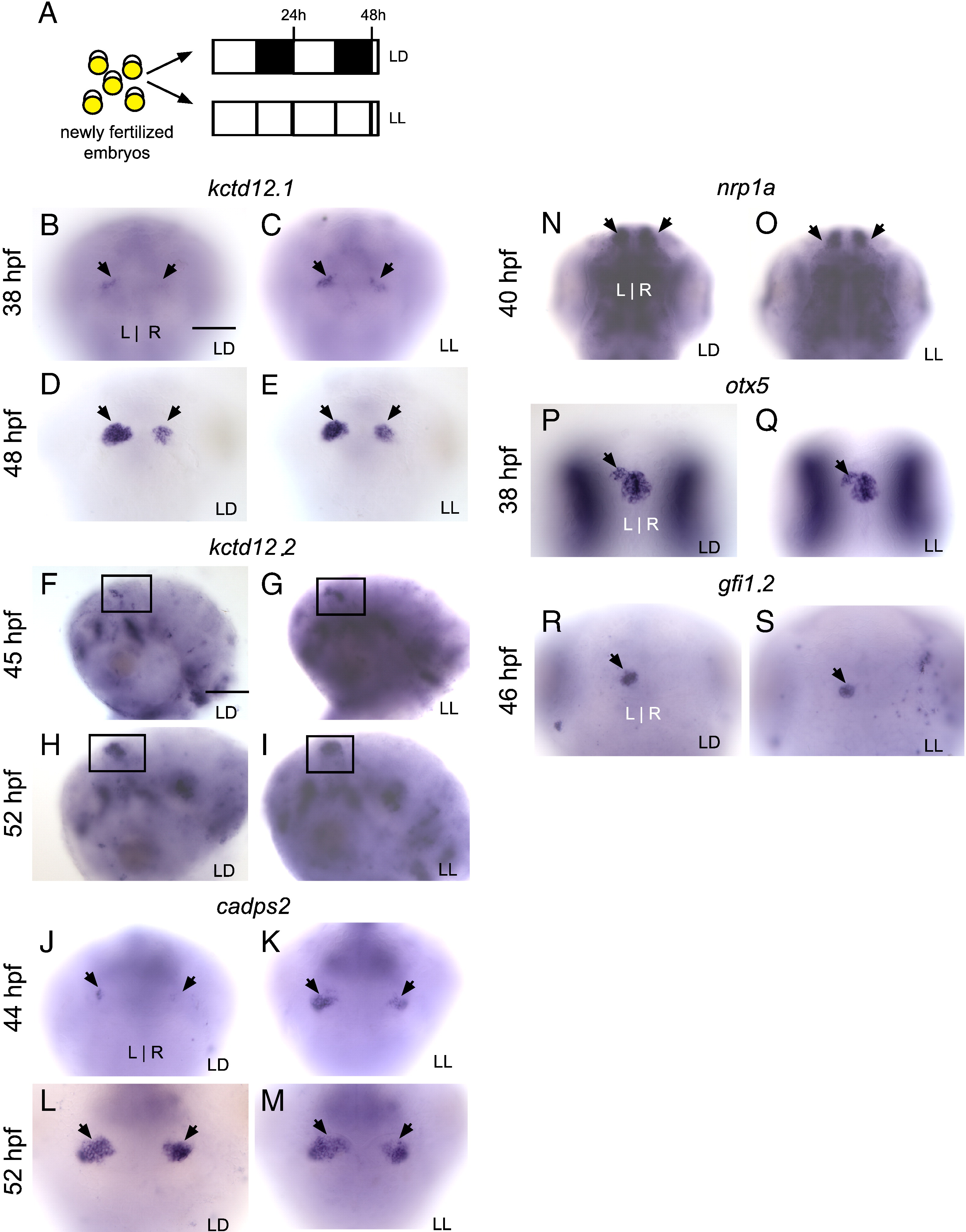Fig. 6 Constant light is sufficient for the timely appearance of habenular neurons in the absence of melatonin. (A) Zebrafish embryos were raised in 14/10 light/dark (LD) or constant light (LL) conditions beginning at 5 minutes post-fertilization. (B?E) Expression of kctd12.1 initiates in the habenular nuclei (black arrows) at 38 hours post-fertilization (hpf) in LD and LL conditions. (F?M) Expression of kctd12.2 and cadps2 initiates at the same time in LD and LL conditions. Insets in F?I are magnified views of the left habenula. (N?O) Expression of nrp1a in the habenular nuclei (white arrowheads) is unaffected by LL conditions; (P?S) nor is otx5 expression in the pineal and parapineal or gfi1 expression in the parapineal (black arrows). All views are dorsal except for lateral views in F?I. Scale bar = 50 μm except for insets in F?I (25 μm).
Reprinted from Developmental Biology, 358(1), de Borsetti, N.H., Dean, B.J., Bain, E.J., Clanton, J.A., Taylor, R.W., and Gamse, J.T., Light and melatonin schedule neuronal differentiation in the habenular nuclei, 251-61, Copyright (2011) with permission from Elsevier. Full text @ Dev. Biol.

